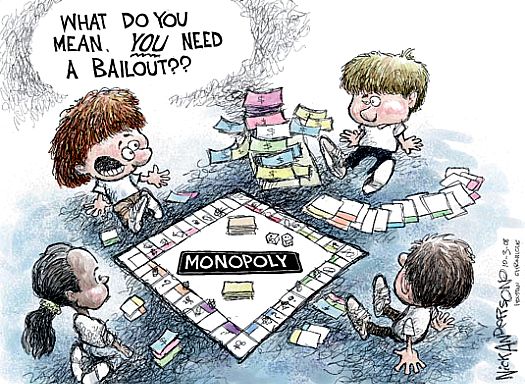Saturday, October 05, 2013 7:45:01 AM
I won't go into the definition of a scam on IHUB, but I like to think of myself as a scam-exposer. I've ruthlessly followed several of them on IHUB before and helped to expose them and their crooked managements. And if this company ever begins to appear as one I will quickly turn on it. There is no harbor for the wicked and the truth always comes out. But until such time, this is not a scam.
I'm not an accountant, and I respect the accountants for what they've posted, and more importantly I believe some of it.
I do however, believe there is a way out. I don't only look at one side, I look at all sides. Remember, it would be extremely unusual for national start-up companies to be profitable from the start. And it would be unusual for them to have only a good side and have zero mistakes along the way.
First of all, we should get something straight: Just because a company isn't profitable doesn't mean it's a scam. It doesn't even mean it's a bad company, or has a bad business model. Many companies we've known started in proverbial garages and could never have been anything more without millions in debt the first several years. Facebook comes to mind. Some other companies who once had success and then had years of unprofitability also are not necessarily scams. Apple comes to mind. And there are CEO's who have had failures, who then have had a huge success. They were not scammers. Richard Branson comes to mind. And last but not least, there are those men who have been to jail, who weren't scammers or bad men. Those examples are obviously large and well known, but there are millions more like them who failed in many ways, and people called them scammers, but they were not scammers. And then there are scams that are hugely successful and because they're successful are considered "not scams" and nobody seems to care. Intent is everything.
Correlation does not imply causation is a phrase used in science and statistics to emphasize that a correlation between two variables does not necessarily imply that one causes the other.
The counter assumption, that correlation proves causation, is considered a questionable cause logical fallacy in that two events occurring together are taken to have a cause-and-effect relationship.
In other words, debt does not make it a scam. Shares used for marketing does not make it a scam. A DUI does not make it a scam. Past failures do not make it a scam. When somebody with failures in his past starts up a public company, open to public scrutiny, it isn't at all a valid assumption to follow every single negative talking point and assume that it's part of a scam.
I would give more credit if it was referenced as what it is rather than what we may want it to be. If it was referenced as a "small chain struggling for profitability with a CEO having a questionable past", and focused on those points, then we could have a reasonable discussion, but warning people of a scam is calumny and libel. It's a cognitive distortion, and it's affecting all of the shareholders.
Although I believe the company can reach a certain level of success, even if I didn't it wouldn't make it a scam in my mind until it is a scam. Wanting it to be a scam is the definition that I think we are actually confusing.
Element79 Gold Corp Appoints Warren Levy to Board of Directors • ELMGF • Aug 28, 2024 9:51 AM
Integrated Ventures Announces Strategic Entry Into Health & Wellness Industry with Focus on GLP-1 Products • INTV • Aug 28, 2024 8:30 AM
ELEMENT79 ANNOUNCES UPLISTING TO OTCQB VENTURE MARKET • ELMGF • Aug 26, 2024 10:03 AM
North Bay Resources Announces Gold Assays up to 2.2 Ounces per Ton, Fran Gold Project, British Columbia • NBRI • Aug 26, 2024 10:00 AM
PickleJar Unveils Latest Venue Managed Services Innovations in Upcoming Webinar • PKLE • Aug 23, 2024 1:11 PM
Element79 Gold Corp Provides Update on Nevada Portfolio • ELMGF • Aug 23, 2024 8:00 AM







